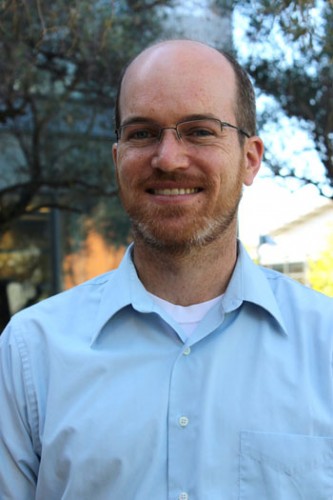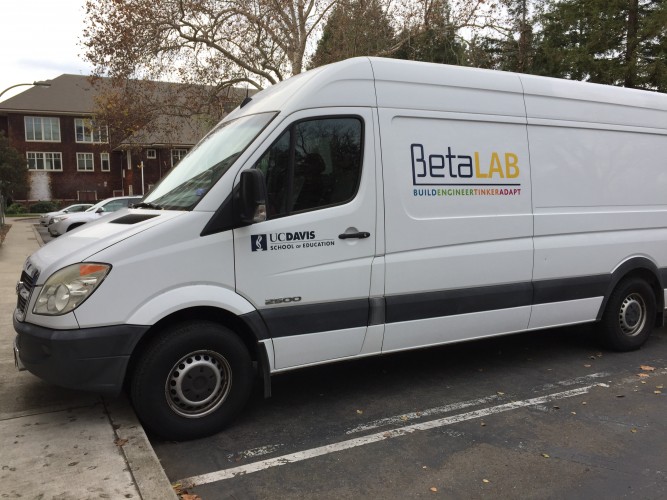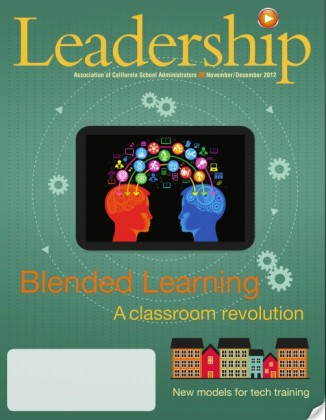Lee Martin
Professor
“When young people are interested in the things they are working with, when they feel like their activities align with their sense of themselves and their possible futures, and when they feel connected to the community they are working within, tremendous amounts of learning can occur. (Martin, 2015)
Lee Martin is the principal investigator for the Beta Lab research group. He studies people’s efforts to enhance their own learning environments, with a particular focus on mathematical thinking and learning. In everyday settings, he looks at the varied ways in which people assemble social, material, and intellectual resources for problem solving and learning. In school settings, he looks to find ways in which schools might better prepare students to be more resourceful and flexible in fostering their own learning.
Research Interests
Adaptive Expertise; Learning and Cognition; Learning in Informal Settings; Mathematics Education; Engineering Education; The Maker Movement
Education
- Ph.D., Education – Stanford University
- B.A.S., Mathematics and Linguistics, University of California, Davis
Select Publications
- Martin, L., & Thomas Murphy, C. (2022). Tinkering in the time of COVID: Lessons from educators’ efforts to facilitate playful tinkering through distance learning. International Journal of Play. https://doi.org/10.1080/21594937.2022.2069350
- Martin, L., & Wendell, K. (2021). Reflections on Asset-Based Pre-College Engineering Education to Promote Equity: An Introduction to the Special Issue. Journal of Pre-College Engineering Education Research (J-PEER), 10(1), 1-2. https://doi.org/10.7771/2157-9288.1325
- Martin, L., & Betser, S. (2020). Learning through making: The development of engineering discourse in an out‐of‐school maker club. Journal of Engineering Education, 109(2), 194-212. https://doi.org/10.1002/jee.20311
- Athanases, S., Sanchez, S., & Martin, L., (2020). Saturate, situate, synthesize: Fostering preservice teachers’ conceptual and practical knowledge for learning to lead class discussion. Teaching and Teacher Education, 88. https://doi.org/10.1016/j.tate.2019.102970
- Linke, B., Martin, L., Garretson, I. (2020). Learning benefits by integrating design, manufacturing, and testing in a course for compressible flow visualizations. International Journal of Mechanical Engineering Education. https://doi.org/10.1177%2F0306419019838279
- Martin, L., & Dixon, C. D. (2019). A mobile workshop model for equitable making with high school aged youth. Advances in Engineering Education.
- Sakkal, A., & Martin, L. (2019). Learning to rock: The role of prior experience and explicit instruction on learning and transfer in a music videogame.Computers & Education, 128, 389-397.
- Martin, L., Dixon, C. D., & Betser, S. (2018). Iterative design toward equity: Youth repertoires of practice in a high school maker space. Equity and Excellence in Education, 51(1), 36-47.
- Dixon, C., & Martin, L. (2017). Make to Relate: Analyzing Narratives of Community Practice. Cognition and Instruction, 35(2), 103-124.
- Martin, L., & Dixon, C. (2016). Making as a pathway to engineering and design. In K. Peppler, E. Halverson, & Y. Kafai (Eds.), Makeology: Makers as Learners (Volume 2) (pp. 183-195). New York: Routledge.
- Martin, L. (2015). The promise of the Maker Movement for education. Journal of Pre-College Engineering Education Research (J-PEER), 5(1), 30-39. http://dx.doi.org/10.7771/2157-9288.1099
- Martin, L., & Schwartz, D. L. (2014). A pragmatic perspective on visual representation and creative thinking. Visual Studies, 29(1), 80-93.
- Martin, L., & Gourley-Delaney, P. (2014). Students’ images of mathematics. Instructional Science, 42(2), 595-614. DOI 10.1007/s11251-013-9293-2.
- Martin, L., & Schwartz, D. (2013). Conceptual innovation and transfer. In S. Vosniadou (Ed.), International Handbook of Research on Conceptual Change, 2nd edition (pp. 447-465). New York: Routledge. (link to book).
- Esmonde, I., Blair, K. P., Goldman, S., Martin, L., Jimenez, O., & Pea, R. (2013). Math I Am: What we learn from stories that people tell about math in their lives. In B. Bevan, P. Bell, R. Stevens & A. Razfar (Eds.), LOST opportunities: Learning in out of school time (pp. 7-27). Netherlands: Springer. (link , preprint)
- Martin, L. (2012). Connection, translation, off-loading, and monitoring: A framework for characterizing the pedagogical functions of educational technologies. Technology, Knowledge and Learning. doi: 10.1007/s10758-012-9193-6. (link)
- White, T., Booker, A., Carter Ching, C., & Martin, L. (2012). Integrating digital and mathematical practices across contexts: A manifesto for mobile learning. International Journal of Learning and Media 3(3), 7-13. (link)
- Martin, L., & Goldman, S. (2010). Family inheritance: Parallel practices of financial responsibility in families. In Lin, L., Varenne, H., and Gordon, E. W., (Eds.) Educating comprehensively: Varieties of educational experiences. Lewiston, NY: The Edwin Mellen Press. (link)
- Pea, R. D., & Martin, L. (2010). Values that occasion and guide mathematics in the family. To appear in K. O’Connor & W. R. Penuel (Eds.), Research on learning as a human science. New York: Teachers College Press. (link , preprint)
- Martin L. & Schwartz, D. L. (2009). Prospective adaptation in the use of external representations. Cognition and Instruction, 24(7), 1-31. (link , preprint)
- Martin, L. Goldman S. & Jimenez, O. (2009). The tanda: A practice at the intersection of mathematics, culture, and financial goals. Mind, Culture & Activity, 16(4), 1-14. (link)
Courses Taught at UC Davis
- EDU 210 – Psychology of School Learning
- EDU 211 – Sociocultural Learning Theory
- EDU 292 – Learning in Informal Environments
- EDU 114 – Quantitative Methods in Educational Research
- EDU 110 – Educational Psychology: General
Beta Lab
The Beta Lab at UC Davis studies how young people learn and develop through participation in making and the Maker Movement. We investigate the nature of learning that occurs during extended, youth-driven maker projects, and we design learning environments and tools to support learning through making.
“Making” as a Pathway to Engineering
November 2013
The “Maker Movement” brings together engineers, hobbyists, artists, and tinkerers to design, build, and repurpose materials that are “playful, creative, yet also technically sophisticated and ambitious,” according to Assistant Professor Lee Martin.
This kind of “tinkering” or making, especially among young people, can lead to careers in engineering. Unfortunately, according to Martin, playful, creative and ambitious project-based learning is often missing in K-12 settings, leaving many youth with no pathway to this critical field of study.
Bridging Mathematics Learning In and Out of School through Mobile Devices
Study presented by Tobin White and Lee Martin at AERA Meeting on April 28, 2013
Most educators recognize the ubiquity of mobile devices in the lives of their students and too often see them only as competition to learning in the classroom. Two researchers at the UC Davis School of Education are exploring another possibility: that mobile devices have the potential to bridge formal and informal learning, particularly in mathematics, and can be leveraged to increase student engagement in learning math.
Adaptive Expertise: Studying STEM Learning in an Out-of-School Program
Februrary 2013
Integrating Digital and STEM Practices
Article by Tobin White and Lee Martin in Leadership - December 2012
Professors Tobin White and Lee Martin have penned an article on how schools can leverage the ways students are already using mobile digital devices to organize and support learning activities in STEM content areas in the November/December 2012 issue of Leadership, a magazine published by the Association of California School Administrators.
Their article, which “calls attention to opportunities, often missed, to capitalize on emerging media for innovative and even transformative educational use,” appears on pp. 22-26. Access the magazine online here.











